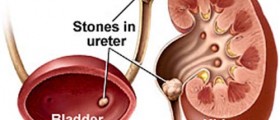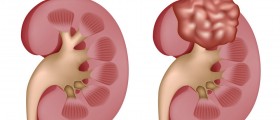
There are various treatments for kidney stones. The treatment depends on the severity of the condition, the type and size of stones, and the cause of the condition. If kidney stones are small and do not cause much difficulties to the patient and they can be treated with painkillers and drinking plenty of water to eliminate the stones from your urinary tract.
Kidney stones surgery is performed in rare cases. On the other hand, if no other treatment was successful and it may be the only option for you. If kidney stones are so large so they cannot be eliminated through your urinary system, the surgery is the best option. There are also other cases when surgery is recommended. These cases includes difficulties to pass urine, blood in the urine, kidney stones are the result of an infection and other problems with the kidneys. If the patient is excessively overweight person, surgery is preferable.
The surgical procedure includes a general anesthesia and a cut in the abdomen or in the back. When the surgeon reaches the kidney, he/she will cut through it until the stone is located and taken out. During the procedure, the surgeon will put some ice on your kidneys to prevent irritation. He/she will also install a catheter in order for you to pass urine while recovering.
The recovery time takes about eight days in hospital and about five weeks of home treatment. This can be very painful period. You may also experience nausea, fever and swelling of the wound.
As any other surgery, this procedure also carries certain risks of complications. The complications may be infection, bleeding and kidney failure. Other complications involve side effects of anesthesia. You may have cardiovascular problems, problems with the lungs, or your brain and nerves can be damaged.
There are other procedures which are successful in dealing with kidney stones. One such procedure involves sound waves. Sound waves are used to break large stones into smaller ones so you could pass them in your urine. This procedure can be painful, so you might be given a mild anesthesia. It also includes some complications such as damage to the surrounding organs and internal bleeding. Another procedure is ureteroscopy. This procedure is performed with a tube-like medical device,similar to a laparoscope, which has a tiny camera at the end. The device is connected to a monitor so the doctor can see in the inside of the urethra, bladder and kidney. One of the causes of kidney stones is over production of the calcium in the parathyroid gland and in this case your doctor will suggest the parathyroid gland surgery to prevent further development of the condition.
















Your thoughts on this
Loading...